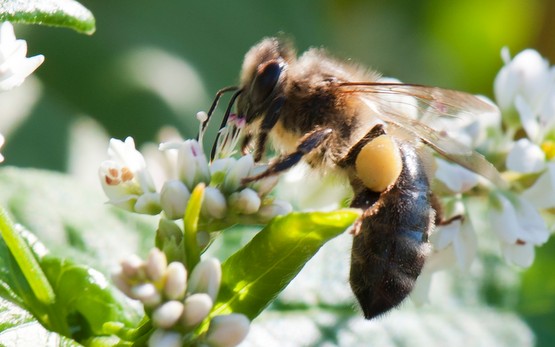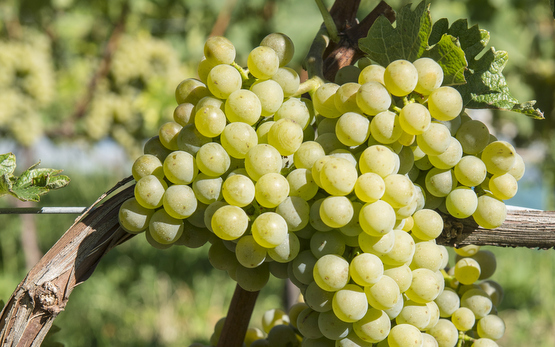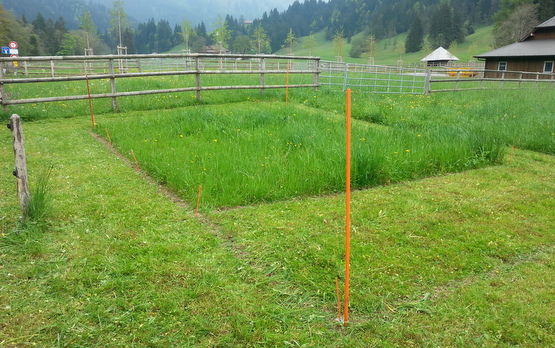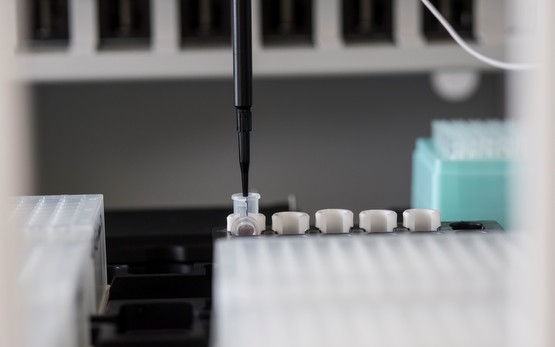Measuring Pollination Deficits in Five Crops
Researchers examined pollination deficits in apple, cherry, oilseed rape, broad bean and raspberry crops in over a hundred locations in the main growing regions of Switzerland. They also measured the impact of the pollinator community on yield quantity and quality. On average, pollination deficits were low but detectable. The data confirm the agronomic importance of crop pollination by insects. Depending on the crop, honeybees, wild bees or a balanced mixture of different pollinators are ideal.
Divona, a New Disease-Resistant White Grape Variety
Christened in 2018, Divona is the result of a cross between the ‘Bronner’ and ‘Gamaret’ varieties. The best candidates were selected throughout an innovative process including, in particular, early disease-resistance tests and winemaking trials. Boasting good resistance to botrytis blight and high resistance to powdery mildew, Divona allows growers to reduce the use of plant-protection products. As for the wines produced from the Divona grape, they are very well noted during tastings: structured, with a fine, aromatic bouquet evoking notes of exotic fruits and citrus.









